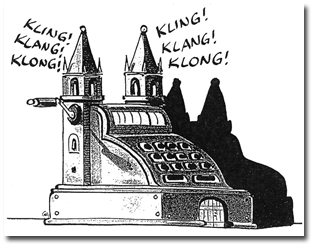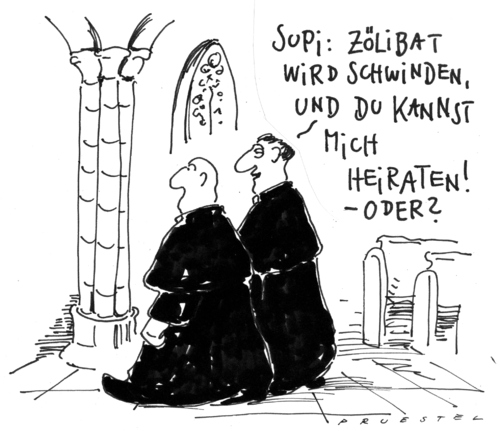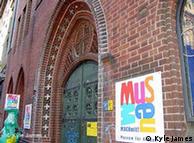Sometimes I wonder, when I am reading outrageous things in the German press, whether I am understanding the German correctly. In the case of the church tax, I was correct. Here is an English-language article:
CATHOLIC BISHOPS in Germany have announced plans to effectively excommunicate believers who refuse to pay the country’s controversial church tax.
The “general decree”, effective from September 24th, excludes non-payers from Communion, Confirmation and Confession or belonging to a Catholic congregation. Catholic funerals will also not be possible “if the person who has left the church has not shown any sign of remorse before death”.
The church says non-payment violates an obligation on its members to make a “financial contribution that allows the church to fulfil its role”.
Germany’s church tax has its origins as compensation for church property seized by state authorities in the early 19th century. Two centuries on, the tax, calculated as up to 8 per cent of income tax, raises approximately €5 billion annually for the Catholic Church; the Lutheran church receives €4 billion. It is collected by the state tax authorities and forwarded on to churches for a handling fee.
Anyone unwilling to pay can fill in a form at a state office. German bishops interpret this as a conscious break with the church but the Vatican said this step was not evidence of a clear “schism” and grounds for excommunication.
In a compromise with the Vatican, bishops will ask priests to write to anyone planning to leave, warning of the consequences and inviting them to meet.
“If the reaction of the believer . . . can be attributed to a schismatical, heretical or apostatical act,” the bishops write, “appropriate measures will be taken.”
At dinner my family was discussing this and the word simony kept popping up.
Father Antonio José Martinez (1793-1867) of Taos, New Mexico, was himself a wealthy man, but when Mexico became independent he was instrumental in abolishing compulsory tithes because he thought they hurt the poor and led to alienation from the Church. Martinez paid for most of the expenses of the local church out of his own pocket.
When Lamy became Archbishop of Santa Fe, he wanted his tithes and denied the sacraments to anyone who did not pay the tithe. Lamy planned a bureaucracy and a school system and needed money to pay for them. Martinez protested and this controversy was one of the major sources of the fight between Martinez and Lamy.
The more things change…





